Khamenei’s Prisoner Amnesty Is Not For Everyone: Iran Attorney General
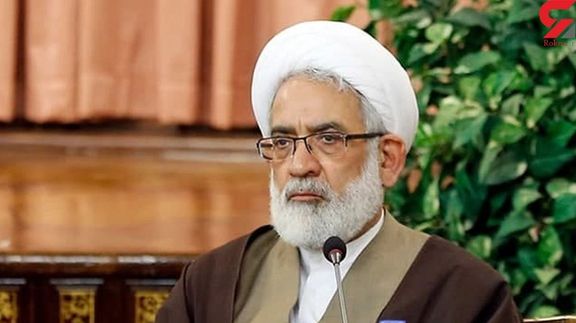
Iran’s Attorney General says the people who created fake deaths and caused damages during the protests will not be pardoned and must be held accountable.

Iran’s Attorney General says the people who created fake deaths and caused damages during the protests will not be pardoned and must be held accountable.
Referring to Supreme Leader Ali Khamenei’s amnesty for some prisoners arrested during antigovernment protests in recent months, Mohammad Jafar Montazeri claimed it was a “clemency” by the Supreme Leader.
When the crime of every person is proven, he will be indicted and must be punished, he said during a three-day visit to Esfahan province.
“The right of amnesty has been given to the Leader in the Constitution, which is carried out at the request of Chief Justice. If the leader thinks it is necessary, he might pardon the condemned people,” added Montazeri.
Government media reported February 5 that Khamenei “agreed” with a proposal by the country’s Judiciary to take what appears to be a political move to show clemency after hundreds were killed and around 19,000 arrested.
It is not clear from the announcement how many or which prisoners will be pardoned and whose sentences will be reduced. While thousands of young and teenage protesters were arrested in street demonstrations, hundreds of political activists, journalists and writers and artists have also been detained.
Khamenei's move came at the 44th anniversary of the Islamic Republic, as a move to rescue the image of the regime amid a grim economic crisis and mass public rejection of the political system he presides over.
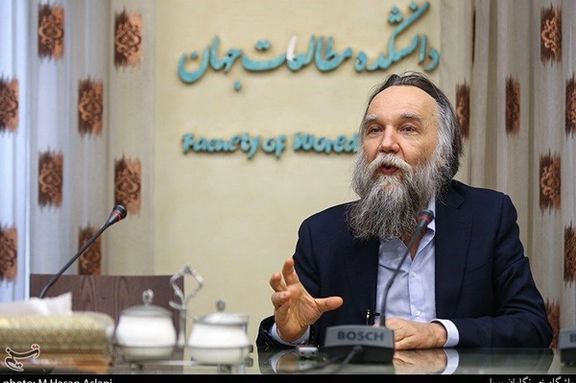
Alexander Dugin, the Russian ultra-nationalist philosopher, has participated in a ceremony commemorating the 44th anniversary of the establishment of the Islamic regime in Moscow.
Dugin, known as Putin's brain, is a philosopher and extremist nationalist who advocates the creation of a new Russian empire and is also a supporter of the military attack on Ukraine.
Some analysts believe that the 60-year-old theorist has a lot of influence on Russian President Vladimir Putin.
In recent years, Dugin has been invited to visit Iran regularly, usually by hardliners and entities associated with the Revolutionary Guard.
During a visit to the religious city of Qom in 2015, Dugin referred to modernity as “Satan”, the West as “the hereditary house of Satan,” and Iran as “the main base of war against modernity.”
Dugin believes that Ayatollah Khamenei is the “best solution” for confronting the West. “If he helps to defeat the West I am sure we will emerge from this arena victorious and proud,” he said, because “in the center of the Guardianship of [the Islamic] Jurist, God’s will is at work.”
But while he wants Ali Khamenei’s help in defeating the West, Dugin concedes that he has not been successful in bringing Iran and Russia closer. “Young Iranians are not very interested in getting to know Russia. Perhaps we should search for a key to open this door between the two countries,” he said.
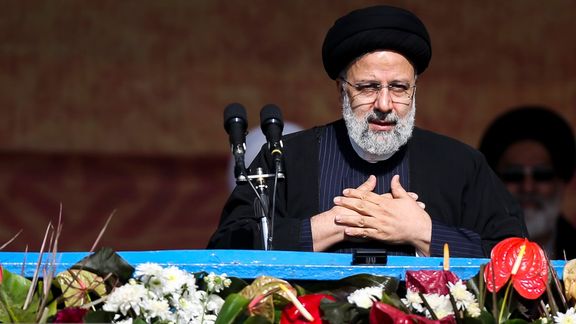
Finding itself under pressure, the Islamic Republic may be ready to make some concessions to protesters at home and to Western countries whose citizens are held hostage in Tehran.
Reports from Tehran say that French-Iranian dual national academic Fariba Adelkhah has been released from jail. Adelkhah was sentenced to five years in 2020 on national security charges that she denied. Reports say that there are still several other French nationals in jail in Iran who are in essence Iran's hostages.
For decades, the Islamic Republic has been arresting foreigners and dual nationals on vague and trumped-up charges, keeping them in prison until it can make a deal with Western countries either for money, diplomatic concessions or freeing its agents convicted abroad.
Speaking on the anniversary of the 1979 Islamic revolution Foreign Minister Hossein Amir-Abdollahian told an NPR correspondent that an agreement to swap dual national prisoners with the United States is on the table.
He said that releasing Iranian-American Siamak Namazi is pending some technical measures on the part of the United States. However, he did not elaborate on the nature of those measures.
Amir-Abdollahian also tried to sound optimistic on the nuclear issue, as Iran finds itself under more isolation and the pressure of sanctions. He said that there is still a window of opportunity for all sides to return to the JCPOA.
Meanwhile, the violation of human rights by the Iranian regime during recent protests, and Tehran's involvement in Moscow's war against Ukraine have made the situation more complicated, making it difficult for the United States and Europe to make a deal with Iran.
On the domestic front, while according to political activists only around 150 of the prisoners "pardoned" by Supreme Leader Ali Khamenei were actually released from jail until Friday, reports came in Saturday morning about more political prisoners being released from detention.
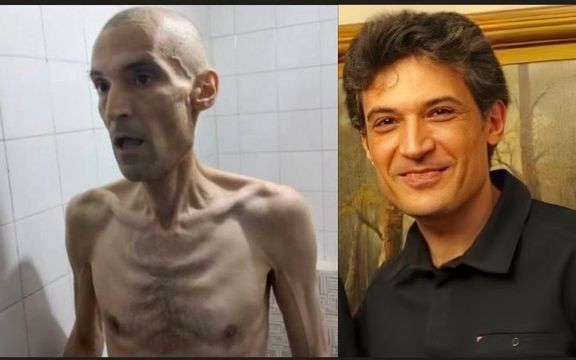
One of them was Farhad Meysami, whose heart-wrenching pictures were released last week following a long hunger strike. Meysami who was sentenced to five years in jail, was freed only four months before the end of his sentence.
While reports in Tehran indicated that President Ebrahim Raisi was going to make a “very important” announcement in his revolution anniversary speech on Saturday, his remarks contained nothing other than the usual unfounded claims about the Islamic Republic being the top power in the region, having achieved great success in many areas.
After the speech however, Iranian media sources quoted Raisi as having said that all students, cultural and athletic figures and media activists in jail are also going to be pardoned. Raisi tried to portray the amnesty as a measure championed by his government rather than the Iranian Judiciary Chief, Gholam-Hossein Mohseni Ejei, who had called for a partial amnesty.
More than 90 Iranian journalists and a dozen athletes are said to have been detained during the protests since September, and many have already been released.
It is still not clear how many of the "tens of thousands" of prisoners who were to be freed based on Ejei's request are still remaining in jail and how many have been released.
Raisi’s promise to release more detainees was also vague. He did not mention how many prisoners would be included in the amnesty. However, he said the "fatherly amnesty" is a measure to confront the enemies who sow discord in Iran.
He also promised that the government is planning to facilitate the return of Iranians living abroad including those who have possibly acted against the law, but declined to elaborate. He only said that people will be notified of the measures "soon".

Two months after a controversial statement by China and the Arab countries of the Persian Gulf about three Iranian islands, to which Tehran protested, Ebrahim Raisi will visit Beijing.
The Ministry of Foreign Affairs of China announced Sunday that Iran’s president will visit next Tuesday upon the invitation of Chinese President Xi Jinping.
The state news agency IRNA also reported that during the trip, "cooperation documents" will be signed between the two countries, and Ebrahim Raisi will participate in a joint meeting of Iranian and Chinese businesses.
In recent years, especially after the withdrawal of the United States from the 2015 nuclear agreement, the Islamic Republic has tried to get closer to China and Russia.
In addition to the controversial 25-year-old agreement between the two countries, the Islamic Republic considers it very important to join the Shanghai Cooperation Organization led by China and Russia.
Citing the statements of some government officials, Iranian state media say the Chinese are not willing to invest in Iran.
The head of the joint chamber of Iran and China earlier confirmed reports of a decrease in Chinese investment in Iran stressing that one of the reasons is the inclination of some officials of the Islamic Republic towards the west.
Two months ago, a joint statement by China and six Arab countries about the three islands of Greater and Lesser Tunbs and Abu Musa provoked Iran's reaction.
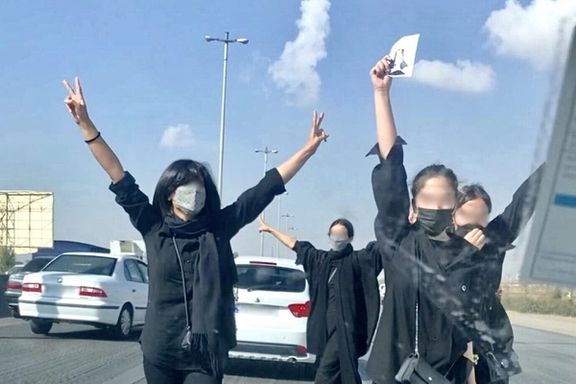
Iran’s President Ebrahim Raisi claimed on Saturday that women are free in Iran and their presence in different fields is “strong”.
He made the remarks during his speech on the 44th anniversary of the establishment of the Islamic Republic.
His statements echo similar claims by regime officials, especially during the five months of anti-regime protests that began in September following the death of Mahsa Amini in police custody.
Women have faced many restrictions and prohibitions in the four decades since the establishment of the Islamic Republic, including the imposition of mandatory hijab, and the ban on singing and dancing.
In addition to lifestyle restrictions, women are discriminated against in obtaining high-level government posts and in receiving inheritance.
The current protests against the regime are partly driven by women and many men who resent the suppression of equal rights.
In another part of his speech, Raisi emphasized that the slogan "Neither East, nor West" is still one of the pillars of the Islamic Republic, although the regime has aligned itself with Russia and China.
For more than a decade, Iran and the governments of Russia and China, as "Eastern powers", have had close relations in various fields, including the military cooperation between Tehran and Moscow in the war on Ukraine.
In another part of his speech, Raisi said the protesters had been "deceived during the riots", alleging that they "realized the enemy is looking for sedition."
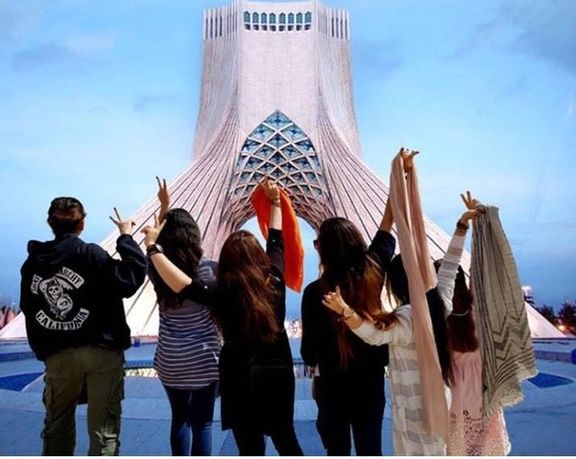
Friday imam of Ahvaz in southwestern Iran says the government will not back down in enforcing hijab, otherwise women will come to the street naked this summer.
During a sermon on Friday, Mohammad Nabi Mousavifard called on the authorities to approve a law to deal with women who do not observe hijab.
“We have to pay for the preservation of religious values, even if we need to go to court several times,” he added.
Mousavifard further asked the judges to be very careful about such matters and enforce the law to deal with these “anomalies”.
“People and social service providers should stop giving services to people without hijab; People should give women with improper hijab warnings and not be indifferent, otherwise they will come to the street naked in the summer,” noted the cleric.
In January, the Supreme Leader’s representative in the city of Karaj said the reason for low precipitation and drought in the country is a lack of hijab observance, after many women took off their veils following months of protests.
Mohammad-Mehdi Hosseini Hamedani, the Friday prayer imam in Karaj, reiterated that observance of hijab should be enforced strictly in society.
"It is not possible to imagine that we are living in an Islamic country when we enter some institutions, shopping malls, pharmacies, etc.!" he said, calling on the authorities to warn shops and malls not to serve women who have removed their hijab and close them down if warnings did not suffice.